- Home
- About
- Hospitals
-
Treatments
- Orthopedic & Spine
- Knee Replacement
- Carpal Tunnel Release
- Rotator Cuff Repair
- Meniscus Repair / Meniscectomy
- Total Hip Replacement (THR)
- Total Shoulder Replacement
- Arthroscopy
- Ligament Reconstruction
- Spinal Fusion
- Discectomy
- Laminectomy
- Spinal Decompression
- Vertebroplasty and Kyphoplasty
- Fracture Repair
- ACL Reconstruction
- Tendon Repair
- Osteotomy
- Amputation
- Pediatric and Adult Cardiac
- Neuroscience
- Oncology
- Nephrology & KTP
- Gastroenterology & Hepatobiliary
- Obstetrics and Gynaecology
- Infertility
- Dental & Maxillofacial
- Plastic & Cosmetic Surgery
- Rhinoplasty
- Blepharoplasty (Eyelid Surgery)
- Facelift (Rhytidectomy)
- Breast Augmentation (Mammoplasty)
- Breast Reduction (Mammoplasty)
- Breast Lift (Mastopexy)
- Liposuction
- Abdominoplasty (Tummy Tuck)
- Brazilian Butt Lift (BBL)
- Lip Augmentation
- Breast Reconstruction
- Cleft Lip and Palate Repair
- Scar Revision
- Burn Reconstruction
- Botox Injection
- Ophthalmology
- Otolaryngology (ENT)
- Endocrinology
- General and Minimal Invasive Surgery
- Pulmonology
- Rheumatology
- Urology
- General Medicine
- Ayurvedic Treatment
- Orthopedic & Spine
- Doctors
- Contact Us
Valve Repair or Replacement
Valve Repair or Replacement is a surgical procedure used to treat heart valve diseases, which can
affect the function of the heart's valves. Heart valves control the flow of
blood through the heart, ensuring that blood moves in the correct direction and
does not leak backward. When heart valves become damaged or diseased, they may
need to be repaired or replaced to restore normal valve function. The choice
between repair and replacement depends on various factors, including the type
and severity of the valve disease and the patient's overall health.
Valve Repair: Valve repair is a surgical procedure that
aims to preserve the patient's natural valve by repairing any structural
abnormalities or damage. This approach is often preferred when the valve is
still functional but has a specific problem, such as valve regurgitation
(leakage) or stenosis (narrowing).
Common
reasons for valve repair include:
- Repairing torn or damaged valve leaflets.
- Reshaping or resizing the valve to improve function.
- Reinforcing or reconstructing the supporting structures around the valve, such as the annulus or chordae tendineae.
- Correcting valve prolapse (when the valve bulges back into the
atrium) by repositioning or shortening the chordae tendineae.
Valve repair is typically associated with several advantages, including
the preservation of the patient's own valve, reduced risk of infection, and
often a lower risk of long-term anticoagulant medication use. It can result in
improved valve function and a return to normal activities for many patients.
Valve Replacement: Valve replacement involves
the removal of the diseased valve and its replacement with a prosthetic
(artificial) valve. This procedure is typically chosen when the valve damage is
severe and cannot be effectively repaired or when the patient has multiple
valve issues, making repair less practical.
There are
two types of prosthetic valves:
- Mechanical Valves: These are made of materials such as metal or pyrolytic carbon. They are durable and can last a long time, but they require lifelong anticoagulant (blood-thinning) medication to prevent blood clots from forming on the valve.
- Biological Valves: Also
known as tissue valves, they are typically made from animal tissues (such
as porcine or bovine valves) or human donor tissues. Biological valves do
not require lifelong anticoagulants but may have a limited lifespan and
need replacement after several years.
The choice
between mechanical and biological valves depends on the patient's age,
lifestyle, and individual medical considerations.
Valve replacement is a highly effective treatment for patients with
severely damaged heart valves. It can alleviate symptoms, improve overall heart
function, and enhance the patient's quality of life. However, valve replacement
may require lifelong medication (in the case of mechanical valves) and periodic
follow-up to monitor valve function.
The decision to undergo valve repair or replacement is made on an
individual basis, taking into account the specific valve condition, the
patient's age and health, and the preferences of both the patient and the
cardiac surgeon.
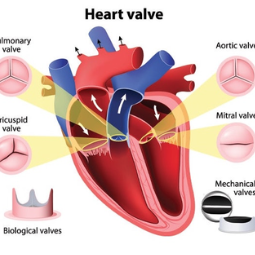


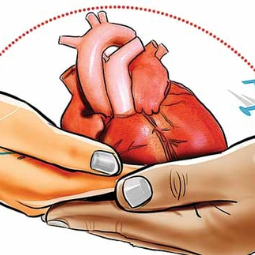
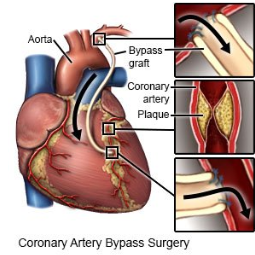
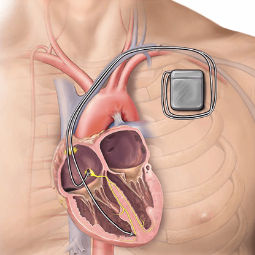
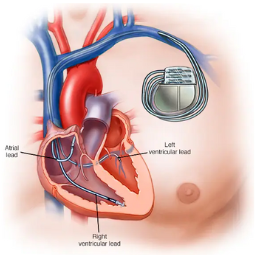
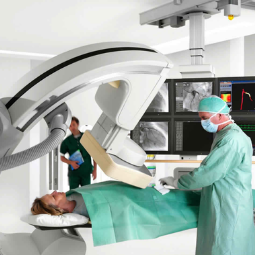
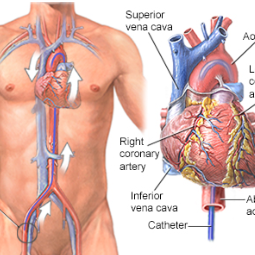
.png)